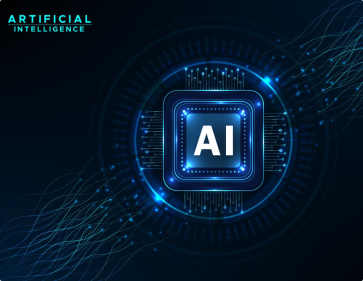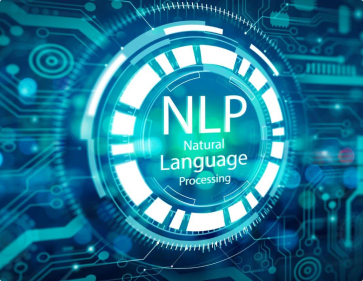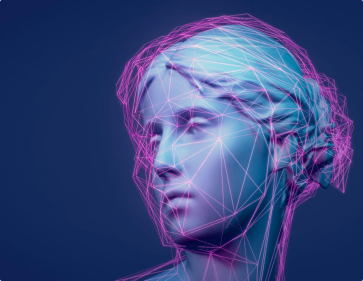Computer Science and Engineering (AI & ML)
Machine Learning: A computer is able to learn from experience without being specifically programmed..
Programme Scope
Artificial intelligence (AI) and machine learning (ML) courses cover a wide range of topics and applications. The following are some of the primary topics covered in AI and ML courses:

Foundations of AI and Machine Learning
These courses frequently begin with an introduction to the core concepts, theories, and techniques of AI and ML. They establish the framework for more advanced courses by covering fundamental concepts such as data types, algorithms, statistics, linear algebra, and probability theory.

Machine Learning Algorithms
This area deals with various machine learning algorithms such as regression, classification, clustering, dimensionality reduction, and reinforcement learning. Students explore fundamental concepts, assumptions, and implementations of real-world algorithms.

Deep Learning
It is a subfield of machine learning that deals with neural networks and their sophisticated topologies. Convolutional Neural Networks (CNN), Recurrent Neural Networks (RNNs), Generative Adversarial Networks (GANs), and Deep Reinforcement Learning are some of the topics covered in these courses.

Natural Language Processing
Natural Language Processing (NLP) is the interaction of computers with human language. Textual data processing and analysis techniques, sentiment analysis, machine translation, information retrieval, and text generation are all covered in NLP courses.

Computer Vision
Computer vision involves teaching machines to recognize and interpret visual data. Image classification, object recognition, image segmentation, and face recognition are some of the topics covered in these courses.

Big Data & Data Engineering
AI and ML are primarily data-driven, and these courses deal with large-scale data collection, preprocessing, storage, and analysis. Students learn about technologies such as Hadoop, Spark, and distributed computing frameworks.
Learning Scope
Artificial Intelligence (AI) and Machine Learning (ML) have a broad learning reach that encompasses many areas and concepts. Here’s an outline of the AI and ML learning scope:
Artificial Intelligence
AI Fundamentals
Understand the fundamental concepts, history, and ambitions of artificial intelligence.
Problem Solving
Discover many approaches to issue solving, such as search algorithms, heuristics, and optimization strategies.
Knowledge representation
The study of methods of representing and organizing knowledge, including logical reasoning and semantic networks.
Expert Systems
Learn how to construct rule-based systems that mimic human competence in specific fields.
Machine Learning
Machine Learning
Learn the fundamentals of machine learning, its algorithms, and applications.
Supervised Learning
Discover how algorithms use labelled data to produce predictions or classifications.
Unsupervised Learning
Investigate algorithms that find patterns and structures in unlabeled data, such as clustering and dimensionality reduction approaches.
Reinforcement Learning
Explore techniques where an agent learns to interact with an environment to maximize rewards.
Deep Learning
Learn about artificial neural networks with numerous layers, such as convolutional neural networks (CNNs) and recurrent neural networks (RNNs).
Feature Engineering
Discover how to preprocess and manipulate data to generate relevant features for machine learning models.
Evaluation & Model Selection
Learn how to evaluate ML models and choose the best performing one.
Model Deployment
Discover how to deploy machine learning models in production systems for use in real-world applications.
Career Progression Scope
The field of AI and ML (Artificial Intelligence and Machine Learning) offers significant career progression opportunities due to its rapid growth and widespread application in various industries. AI and ML offer a wide range of career paths. Some common roles include machine learning engineer, data scientist, AI researcher, data analyst, AI consultant, and AI project manager. These roles differ in their focus, technical expertise, and responsibilities, allowing professionals to choose the path that aligns with their interests and skills.
AI and ML advancements continue to create opportunities for entrepreneurs and innovators. Starting your own AI-based company or developing novel AI solutions can be a rewarding career path. The ability to identify gaps in the market, leverage AI technologies, and deliver valuable products or services can lead to significant career growth and financial success.
4 years
curriculum
Industry Powered
Laboratories
60 Seats
Intake
Laboratories
Industrial Powered Laboratories
Events Organized
Consultancy
Magazine
Student List
Laboratories
Computer Practice Laboratory
DBMS and Networking Laboratory
Networking Lab
Case Tools and Graphics Laboratory
Project Lab
CSE Research Lab
IT Center
Industrial Powered Laboratories
Events Organized
Consultancy
Magazine
Student List
Vision
- To become a model hub for computer science and engineering-artificial intelligence and machine learning education and research by acquiring, disseminating, and generating knowledge in order to meet societal demands.
Mission
- To provide outstanding education in cutting-edge technologies, as well as a teaching and learning environment in Computer Science and Engineering-Artificial Intelligence and Machine Learning.
- A center of excellence will be built in collaboration with industry, research institutes, and other organizations to meet society’s evolving demands.
- To establish an environment that encourages innovation, teamwork, and entrepreneurship.
- To uphold and promote high professional ethics and transparency standards.
Program Details
Program Educational Objectives (PEO)
- PEO1: Develop competence in the developing and exponential technologies of Industry 4.0 and 5.0.
- PEO2: To address real-world problems, apply Artificial Intelligence and Machine Learning, Deep Learning, Reinforcement Learning, and Artificial Intelligence.
- PEO3: Be an ethical and socially responsible professional who engages in life-long learning and has an entrepreneurial mindset.
Program Outcomes (PO)
- PO1: Engineering knowledge: Apply the knowledge of mathematics, science, engineering fundamentals, and an engineering specialization to the solution of complex engineering problems
- PO2: Problem analysis: Identify, formulate, review research literature, and analyze complex engineering problems reaching substantiated conclusions using first principles of mathematics, natural sciences, and engineering sciences
- PO3: Design/development of solutions : Design solutions for complex engineering problems and design system components or processes that meet the specified needs with appropriate consideration for the public health and safety, and the cultural, societal, and environmental considerations
- PO4: Conduct investigations of complex problems: Use research-based knowledge and research methods including design of experiments, analysis and interpretation of data, and synthesis of the information to provide valid conclusions
- PO5: Modern tool usage: Create, select, and apply appropriate techniques, resources, and modern engineering and IT tools including prediction and modeling to complex engineering activities with an understanding of the limitations
- PO6: The engineer and society: Apply reasoning informed by the contextual knowledge to assess societal, health, safety, legal and cultural issues and the consequent responsibilities relevant to the professional engineering practice
- PO7: Environment and sustainability: Understand the impact of the professional engineering solutions in societal and environmental contexts, and demonstrate the knowledge of, and need for sustainable development
- PO8: Ethics: Apply ethical principles and commit to professional ethics and responsibilities and norms of the engineering practice
- PO9: Individual and team work: Function effectively as an individual, and as a member or leader in diverse teams, and in multidisciplinary settings
- PO10: Communication: Communicate effectively on complex engineering activities with the engineering community and with society at large, such as, being able to comprehend and write effective reports and design documentation, make effective presentations, and give and receive clear instructions
- PO11: Project management and finance: Demonstrate knowledge and understanding of the engineering and management principles and apply these to one’s own work, as a member and leader in a team, to manage projects and in multidisciplinary environments
- PO12: Life-long learning: Recognize the need for, and have the preparation and ability to engage in independent and life-long learning in the broadest context of technological change
Program Specific Outcomes (PSO)
- PSO1: Discover the basics, methodologies, tools, and applications of supervised, unsupervised and semi supervised machine learning and artificial intelligence.
- PSO2: Ability to apply Machine Learning, Deep Learning, Reinforcement Learning and Artificial Intelligence to build new-age products, services and technologies.
